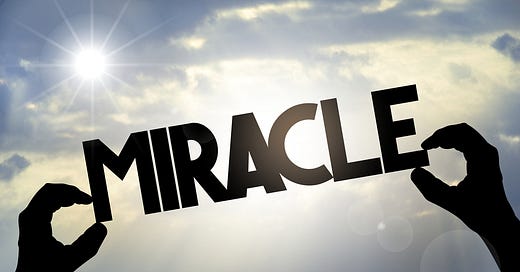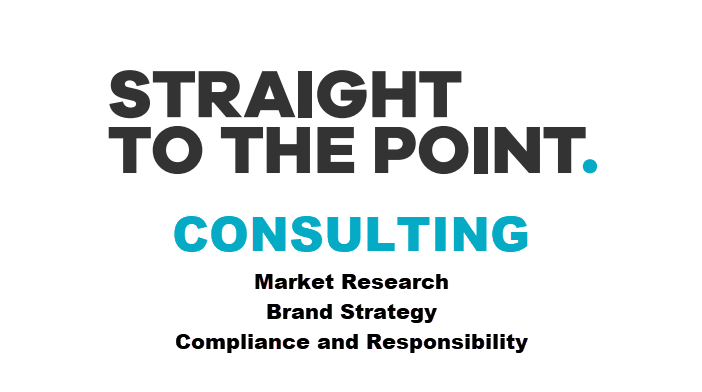Do You Believe In Miracles
Hawaii is looking more and more like it will be 2025's dark horse, as the state is nearing the finish line after the Senate passed a mobile sports betting bill.
The Bulletin Board
THE LEDE: Hawaii is really close to legalizing sports betting.
ROUNDUP: NC Bill bans college and Olympic props; Bally’s acquires Star; MA tribe expands temporary casino.
NEWS: Retail gaming still dwarves online.
VIEWS: Kalshi wins Round 1 against Nevada; expect a 12-round slugfest.
AROUND the WATERCOOLER: Industry folks on the move, including to Kalshi.
STRAY THOUGHTS: A common mistake.
SPONSOR’S MESSAGE - Episode 70: Who Is Winning The A.I. Arms Race
Host Brad Allen is joined by industry founder Stephen Taylor-Matthews to discuss:
Selling his company to Underdog
Why Flutter, DraftKings and bet365 are leading on A.I.
The Lede: Hawaii Sports Betting Bill In the Home Stretch
There are a lot of consequential headlines in the world of gambling (prediction markets, sweepstakes, you name it). Still, the surprise headline of the year is Hawaii legalizing mobile sports betting.
As I recently said, “It might be time to take Hawaii’s sports betting bill, HB 1308, seriously, as it has passed the House and is moving through the Senate.”
The Aloha State is now two formalities away from occurring (which is where the wheels have been known to come off; just ask Michigan in 2018). The Hawaii Senate passed the bill (after some contentious debate and a few changes), which will now go back to the House for concurrence and then to the desk of Gov. Josh Green, whose recent comments indicate he is eager to sign the bill.
There will likely be a third step in the process, and that step will be the most precarious.
Several details still need to be ironed out. That means the bill will likely be amended again in the House, sending it back to the Senate, where HB 1308 passed by a 15-10 vote after some significant pushback. The storyline to follow is how many votes might get peeled off after House amendments.
The low 10% tax rate and a $250,000 license fee might be up for debate.
The Senate also changed regulatory oversight to the Department of Law Enforcement, a big topic of discussion since Hawaii doesn’t have gambling or any gambling regulators.
The lack of infrastructure also calls into question the proposed timeline in the bill that has the act going into effect on July 1, 2025 — it’s hard to imagine a new regulatory staff being ready to accept licensing applications in three months.
STTP Thoughts: Always bet on a dark horse. Whenever I’m asked to list the top online gambling legalization candidates, I always highlight that there will be a state not on anyone’s radar. In 2025, that state looks to be Hawaii, one of two states without any legal betting options: no casinos, no lottery, no nothing.
Roundup: NC Bill Bans College Props; Bally’s Acquires Star; MA Tribal Casino Update
North Carolina bill would ban prop bets on college and olympic events: A bipartisan group of North Carolina lawmakers has introduced a bill, HB 828, that would prohibit prop bets on college and Olympic sports. the bill would also prohibit in-person wagering at arenas during college or Olympic events.
Bally’s to Acquire beleaguered Star Entertainment: Australia’s Star Entertainment Group will hand over control of its casinos to Bally’s in a $180 million deal. Considering Star’s precarious financial situation, the deal has raised eyebrows, with some analysts believing Bally’s is perhaps taking its eye off its core US business. Per Inside Asian Gaming: “Star Entertainment Group has been described by CBRE Credit Research as a risky move that won’t resolve Star’s ongoing issues and will likely require further capital investment to improve operations. CBRE analysts have also questioned the probable use of funds from the Bally’s restricted group… they would prefer such funds to be directed towards the US operator’s ongoing casino development in Chicago.”
Mashpee “Welcome Center” now has 50 slot machines: A tribal welcome center in Massachusetts has expanded from 10 to 50 gaming machines, as the Mashpee Wampanoag prepare to build a casino (with the help of Genting) that is more than a decade in the making. As the Taunton Gazette noted, “When the welcome center opened, it originally only had 10 gaming machines and the revenue from those machines went to charity, but a new deal with the city will see the tribe collect revenue from the machines.” Per Casino.org, the new deal “dictates that 2.05% of the money retained by the Welcome Center gaming machines be allocated to the city. In exchange, the City of Taunton will delay taking legal action on the tribe’s overdue payments in lieu of taxes that currently amount to $2,355,556.53.”
News: Online Gambling Is 15% of Total Gambling Revenue
Online Gambling is still a small slice of total gambling revenue in the US, according to a new report from Eilers & Krejcik Gaming (a newsletter sponsor).
The combination of online lottery, ADW wagering, mobile sports betting, and online casino-poker accounts for 15% of all (licensed) gambling revenue in the US. That’s less than retail lottery or tribal casinos individually, and half the percentage of commercial casinos.
Still, on its own, mobile sports betting is the fourth largest vertical, and even though it’s legal in just eight states, online casino-poker is tied for fifth, with slot routes.
However, online revenues are growing much faster, with online sports betting, online casinos, and online lottery showing 26%-plus growth year-over-year. By comparison, the fastest growing retail segment is charity gaming at 6% — tribal and commercial casinos did see modest growth from 2023 to 2024. Those numbers shouldn’t be surprising given the spread of sports betting post-PASPA and the impact of the pandemic and lockdowns in 2020 on consumer behavior.
Views: Kalshi Wins Round 1 of Court Battle
Kalshi scored a small victory in its fight against Nevada yesterday. United States District Court Judge Andrew P. Gordon granted Kalshi’s request for a temporary restraining order and preliminary injunction (“In Part,” which legal minds following the case believe is indicative of a time restriction) that allows Kalshi to continue operating in the state while the legal process continues.
Attorney Andrew Kim (a must-follow for the current legal fight over prediction markets) previously pointed out the strengths of Kalshi’s arguments for a TRO/PI, as well as his thoughts on a “flawed” Nevada brief.
Kim offered some thoughts post-hearing, saying “Whether the CFTC's jurisdiction preempts state regulation of sports-related event contracts is a hard question,” (after noting his thoughts are not legal advice).
“For the states, the biggest issue is the CEA's Special Rule leaves to the CFTC's discretion whether to designate a "gaming" contract contrary to the public interest. § 7a-2(c)(5)(C)(i): "Commission *may* determine that ... such contracts ... are contrary to pub. interest"
“The question is, who is allowed to police gaming contracts? The CFTC, state gaming commissions/law enforcement, or both? Clearly the CFTC, but CFTC possesses up-or-down power. It can't determine a contract to be "gaming" and regulate it - § 7a-2(c)(5)(C)(ii) says prohibited.
“The billion-dollar question is whether that limited role is enough to kick out the states, especially when the CFTC does not act to "determine" contracts that are clearly gaming. Kalshi says yes, states (when they answer the ?) will say no.
“If courts say CFTC's role is exclusive, even if CFTC's only role is to "determine" or not to "determine" (that is the question), then states are unable to act for risk of interfering with the CFTC.
“If I'm Kalshi, I'm trying to come up with ways to illustrate that interference. The sports-related contracts being traded now look a lot like ML wagers. Kalshi may want to identify contracts that might look like sports wagers but hedge against real-world risk.”
Kim went on to say that even if the courts rule that the CFTC is the overseer, “Can it meaningfully regulate these sports-related event contracts? Maybe not legally.”
The CFTC isn’t equipped to handle the consumer protection elements, and would only be able to do so through cooperation with prediction market operators. STTP Thoughts: This singular point is where my concerns arise from. Are we really going to undo decades of gambling regulation because someone discovered a legal euphemism for sports betting?
Kim’s ends by noting it will be difficult for states to sue the CFTC to determine sports contracts to be gaming because of a single word: “The word ‘may’ in the CEA's Special Rule is the key; it commits determination to CFTC's discretion. Can't challenge discretionary agency non-action under APA.”
Per Kim, “I legitimately don't know if the states will be able to stem the tide and protect their jurisdiction.” Kalshi has a strong argument for sports contracts (assuming the CFTC backs its pov), meaning the issue will likely be decided over states’ rights — SCOTUS here we come?
Why hire Steve Ruddock? Over the years, Steve has advised startups, national gambling companies, government agencies, and investment banks on a wide variety of topics.
Whether you’re looking for market research, want to raise your brand awareness, or are trying to develop responsible gaming strategies, Steve can help with honest, balanced, no-nonsense analysis of the situation.
Steve’s unique experience and insights are often the missing piece to the puzzle.
Reach out for more information: Straight to the Point Consulting.
Around the Watercooler
Social media conversations, rumors, and gossip.
Some industry folks are on the move, most notably given the current news cycle:
It is worth noting that Slane has been consulting with Kalshi for several months.
Also on the move:
Young is a friend of the program and a DFS OG, who sits on a number of boards and was most recently COO with FSG Digital after stints with PointsBet and Foxwoods. You may also know Seth as the scooter guy at gaming conferences.
And finally, a promotion:
Stray Thoughts
You got me! As much as I verify things on my own (even when reported by credible outlets), it happens, and it happened yesterday when everyone was reporting on a cease-and-desist letter sent by Delaware to VGW. The problem is that the letter is two years old (h/t to Jessica Welman for figuring that out), and the Delaware press release was to announce VGW leaving the state, which the press release does a not-so-good job of conveying.
Another instance is the recent reporting about a “new” Massachusetts bill that would crack down on marketing and ban prop bets at licensed sportsbooks in the state. This is the third time the bill has been called new. The first was when it was introduced in January (which STTP covered) and actually new. The next time was about two weeks ago when it got a new bill number (okay, that reporting makes some sense given the way MA bill processes work). But now I’m seeing it categorized as “new” once again this week.
The moral of this entry is to trust but verify, even from credible sources. Dig deeper, check primary sources, and don’t take headlines at face value to avoid confusion and false narratives.










